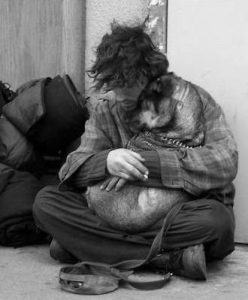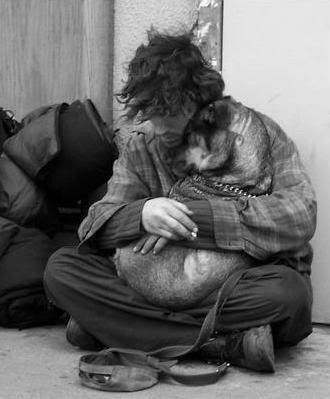James had always considered himself an animal lover, but his busy life left little room for companionship. As a middle-aged executive in London, he spent his days buried in reports, attending meetings, and managing tight schedules. A pet, in his mind, was a luxury he couldn’t afford.
One evening, as James walked home from work, he noticed a small, scruffy dog shivering near a bus stop. Its fur was matted, and its ribs were visible beneath its thin coat. The dog’s eyes, however, held a quiet resilience that struck James deeply. He hesitated at first—surely, someone else would take care of it. But as he took a few steps away, the dog let out a faint whimper. Something in James’ heart tugged, and before he could rationalize it, he bent down and reached out his hand.
He took the dog home, giving it a warm bath, food, and a place to sleep. The next morning, he called a vet, who confirmed that the dog was malnourished but otherwise healthy. The vet also scanned for a microchip, but there was none. For the first time in years, James felt a sense of responsibility that wasn’t tied to his career.

Over the following weeks, the dog—whom he named Charlie—became a part of his life. James found himself hurrying home from work just to see Charlie’s wagging tail. He spent his weekends at the park instead of his office. The once-empty corners of his apartment were now filled with dog toys, a bed, and the comforting presence of a loyal companion.
Charlie, in turn, seemed to sense James’ emotions. On nights when work stress threatened to overwhelm him, Charlie would rest his head on James’ lap, offering silent comfort. On mornings when James struggled to get out of bed, Charlie would nudge him awake, ready for their walk. Their bond grew stronger with each passing day, transforming James in ways he hadn’t anticipated.
One rainy evening, James found himself reflecting on how much his life had changed. Just months ago, he had been consumed by work, indifferent to the simple joys around him. Now, he noticed the crisp air of autumn mornings, the laughter of children in the park, and the warmth of companionship. Charlie had done more than just find a home—he had given James a new perspective on life.
One day, while walking Charlie, James met an elderly man who stopped to admire the dog. “You’ve given him a new life,” the man said. James smiled but shook his head. “I think he’s given me one.”
Then, something unexpected happened. A woman approached James and hesitantly asked about Charlie. She explained that she had lost her dog months ago and had been searching ever since. James’ heart clenched—was Charlie her lost pet? The woman showed him photos, and though the resemblance was striking, Charlie showed no sign of recognition. After much thought, James and the woman agreed to let Charlie decide. If he ran to her, James would return him. But Charlie stayed by James’ side, his tail wagging as he looked up at the man who had saved him.
The woman smiled, her eyes glistening with understanding. “He’s found his home,” she said, giving Charlie one last pat before walking away.
That night, as Charlie curled up beside him, James realized that love—whether given or received—has a way of finding us when we least expect it. In rescuing a stray, James had, in many ways, rescued himself.


